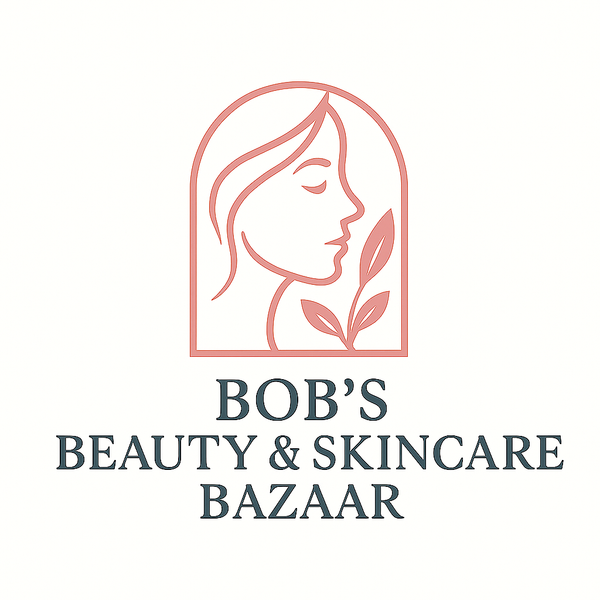Which Anti-Aging Ingredients Really Reduce Wrinkles and Fine Lines Naturally?
The search for youthful, radiant skin doesn’t have to rely on harsh chemicals or invasive procedures. Increasingly, skincare enthusiasts are turning to anti-aging ingredients that reduce wrinkles and fine lines naturally. These ingredients not only support skin health but also often come with fewer side effects and long-term benefits.
This guide breaks down the most effective natural anti-aging ingredients, how they work, and what the latest research says.
Understanding Wrinkles and Fine Lines
What Causes Skin to Age?
Skin aging is a complex biological process influenced by:
-
Intrinsic aging (natural, genetic aging)
-
Extrinsic aging (sun exposure, pollution, lifestyle)
These lead to collagen breakdown, reduced elasticity, and slower cell turnover—all contributing to wrinkles and fine lines.
Why Natural Ingredients Can Help
Many natural ingredients contain antioxidants, fatty acids, and compounds that stimulate collagen, hydrate skin, and protect from free radicals—making them powerful anti-aging tools.
Proven Natural Anti-Aging Ingredients That Reduce Wrinkles and Fine Lines
Each of the following ingredients has scientific backing for its effectiveness in promoting smoother, younger-looking skin—without synthetic chemicals.
1. Retinol Alternatives (Bakuchiol)
-
What it is: A plant-based alternative to retinol derived from the babchi plant.
-
Why it works: Stimulates collagen production and improves skin texture without irritation.
-
Benefits: Reduces fine lines, improves firmness, safe for sensitive skin.
2. Vitamin C (Ascorbic Acid)
-
What it is: A powerful antioxidant found in citrus fruits and some leafy greens.
-
Why it works: Neutralizes free radicals and boosts collagen synthesis.
-
Benefits: Brightens skin tone, fades dark spots, reduces the appearance of fine lines.
3. Hyaluronic Acid (Plant-Derived)
-
What it is: A humectant naturally found in the skin but can be sourced from plants.
-
Why it works: Holds up to 1,000 times its weight in water, deeply hydrating the skin.
-
Benefits: Plumps skin, smooths lines, improves skin texture.
4. Niacinamide (Vitamin B3)
-
What it is: A water-soluble vitamin found in yeast, green vegetables, and cereals.
-
Why it works: Strengthens the skin barrier and boosts elasticity.
-
Benefits: Minimizes pore appearance, improves uneven tone, reduces fine lines.
5. Coenzyme Q10 (CoQ10)
-
What it is: A compound naturally produced by the body, also found in whole grains and fish.
-
Why it works: Supports cellular energy production and reduces oxidative stress.
-
Benefits: Fewer visible wrinkles, firmer skin, protection from environmental stressors.
6. Green Tea Extract (EGCG)
-
What it is: Derived from Camellia sinensis leaves.
-
Why it works: Rich in polyphenols and antioxidants that fight skin damage.
-
Benefits: Reduces inflammation, improves skin elasticity, slows aging.
7. Peptides (Natural Sources)
-
What it is: Short chains of amino acids that signal collagen production.
-
Why it works: Stimulates skin to repair itself.
-
Benefits: Smooths wrinkles, firms skin, enhances resilience.
8. Rosehip Seed Oil
-
What it is: Extracted from the seeds of wild rose bushes.
-
Why it works: Rich in essential fatty acids, vitamins A and C.
-
Benefits: Hydrates, brightens, improves elasticity.
9. Aloe Vera
-
What it is: A succulent plant known for its soothing gel.
-
Why it works: Anti-inflammatory, promotes wound healing, and hydrates.
-
Benefits: Calms irritation, smooths skin, supports regeneration.
10. Resveratrol
-
What it is: A polyphenol found in grapes, berries, and red wine.
-
Why it works: Protects skin from environmental aging and boosts collagen.
-
Benefits: Firms skin, reduces fine lines, and promotes radiance.
How to Use Natural Anti-Aging Ingredients Effectively
Prioritize Consistency Over Quantity
Choose a few proven ingredients and use them consistently rather than overloading your routine.
Understand Ingredient Pairings
Some ingredients, like Vitamin C and E, work better together, while others (like exfoliants and strong actives) may irritate when combined.
Follow With Sun Protection
Even natural anti-aging ingredients need support—daily SPF use protects your skin from photoaging and preserves your efforts.
Ingredients to Avoid When Choosing Natural Anti-Aging Products
If your goal is non-invasive and clean skincare, avoid the following:
-
Parabens (linked to hormone disruption)
-
Synthetic fragrances (may contain allergens)
-
Alcohol-based formulas (can dry out the skin)
-
PEGs and phthalates
These may undermine the benefits of your natural ingredients or cause additional irritation.
FAQs About Anti-Aging Ingredients That Work Naturally
Do natural anti-aging ingredients really work?
Yes. Many natural compounds have strong scientific support for collagen production, antioxidant protection, and hydration.
How long does it take to see results?
Consistent use over 4–12 weeks typically yields visible improvements in skin texture, hydration, and fine lines.
Can I combine multiple natural anti-aging ingredients?
Yes, but avoid overuse. Start with one or two actives and patch-test new products.
Are natural ingredients safer for sensitive skin?
Often yes, but even natural ingredients can irritate. Always read labels and test products before regular use.
Final Thoughts – Aging Gracefully With Nature
There’s no single magic ingredient, but nature offers a wealth of effective, science-backed options to reduce fine lines and wrinkles. Focusing on ingredients like bakuchiol, vitamin C, hyaluronic acid, and niacinamide can lead to visible, sustainable results.
Choosing anti-aging ingredients that reduce wrinkles and fine lines naturally isn’t just about looking younger—it's about embracing healthier, safer skincare practices that support your skin in the long term.
To discover the best beauty and skincare products, we invite you to visit our affiliate links below.
Hydrating Eye Cream with Daisy Stem Cells
